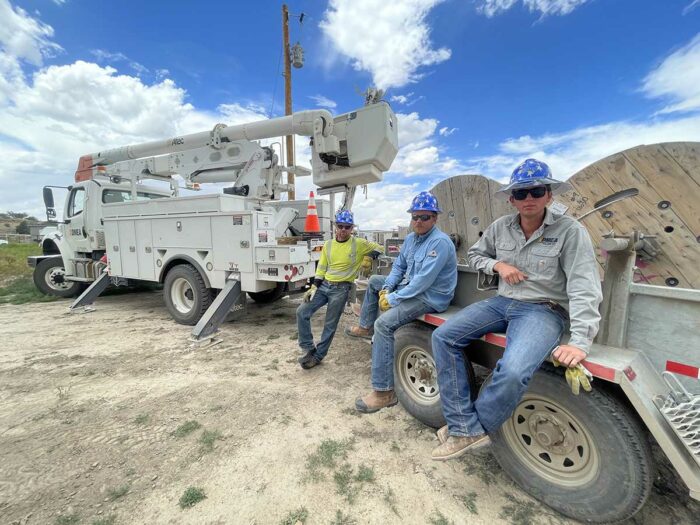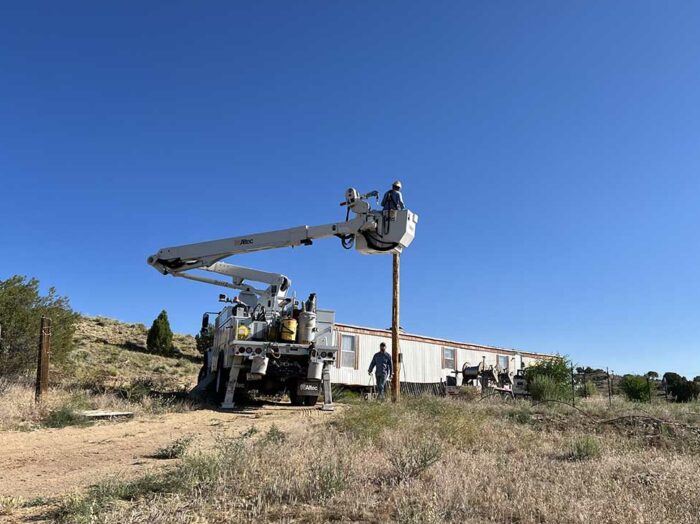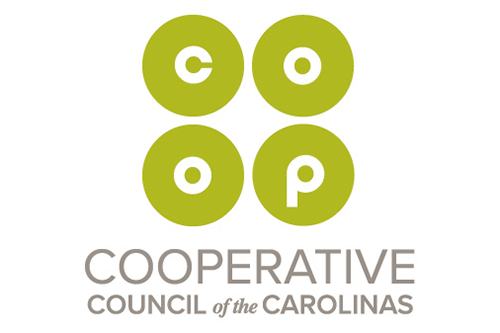
Electric cooperative volunteers from five states will travel to the Navajo Nation this summer to help bring electricity to at least 200 homes as part of an initiative to improve the lives of Americans in remote areas of tribal territory.
More than 13,000 of the approximately 56,000 homes in the Navajo Nation—a territory the size of West Virginia—do not have power. As a result, the families who live in those homes are also without access to the running water that electric pumps provide, forcing them to use outhouses. They also lack broadband service, which uses fiber optic cables strung to power poles.
“I was fascinated and dumbfounded at the same time that there are still so many places in the United States that do not have working electricity,” said Jack Johnston, CEO of Delta-Montrose Electric Association in Montrose, Colorado.
“It’s not just smaller patches of homes that are off the grid, but thousands—with several generations living together in many of them.”
Delta-Montrose was one of four electric co-ops that volunteered last year for Light Up Navajo, an initiative that began in 2019 with investor-owned and municipal utilities volunteering to work under the supervision of the Navajo Tribal Utility Authority to install poles and lines and connect more homes to the grid.
Delta-Montrose, together with Trico Electric Cooperative in Marana, Arizona, and Central Wisconsin Electric Cooperative in Rosholt, Wisconsin, were among the first co-ops to volunteer, bringing equipment and line crews to the Navajo Nation in 2023. All three co-ops are sending volunteers again this year and will be joined by 13 other co-ops from Alabama, Arizona, Colorado, New Mexico, and Wisconsin.
“I thought we needed to step up since most of Navajo Nation is in our state,” said Dave Lock, CEO of the Grand Canyon State Electric Cooperative Association in Arizona, which has volunteers from Sulphur Springs Valley Electric Cooperative going this year along with Trico crews.
“The Trico lineworkers who volunteered last year said it was one of the most rewarding things they’ve ever done. I was down there at Trico recently, and one of the guys approached me and told me how excited he was to be going again.”
Most Americans have no idea that so many of their fellow citizens are living without power, said Walter Haase, general manager of the not-for-profit Navajo Tribal Utility Authority.
Haase, in partnership with the American Public Power Association, came up with the idea for the Light Up Navajo program as a kind of “mutual aid without a storm” initiative. To date, volunteers have brought power to more than 700 homes.
That’s been a big help to the tribal utility, which must spend a whopping $40,000 to build miles of primary power lines to bring electricity to a single home in a remote area, Haase said. NTUA has to install a costly transformer at every one of those isolated homes.
“Through the Light Up Navajo project, communities all across the United States send lineworkers—and often equipment, which reduces costs for us and allows us to take our dollars and spread them out farther,” he said. “We can save about a quarter to a third of the cost when co-ops and other utilities help us.”

The biggest impact, Haase said, can be seen in the daily lives of people who are finally enjoying the benefits of electricity.
“You’ve got refrigeration for the first time, which is huge,” he said. “You’re able to cook and heat your home without having to burn coal and wood. You can get running water to drink, to cook, and to bathe, so you don’t have to drive an hour—several times a week—to fill up your tanks. With electricity, you’ll also have access to broadband service and can make a telemedicine appointment, which is important because we don’t have enough doctors here, and driving to the health care provider takes hours.
“Having electricity erases the worry. It gives people more time in their lives to spend with their grandchildren or take care of their animals or go online to get an education. It’s a gift that all Americans deserve.”
CoBank has established a matching fund of up to $350,000 for donations to the Navajo Tribal Utility Authority to cover the cost of volunteer lodging and equipment. Anyone can donate and all donations are tax deductible. Donations can be sent to: NTUA Public Affairs, c/o Deenise Becenti, PO Box 170, Fort Defiance, AZ


